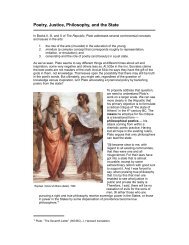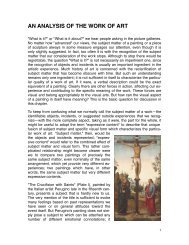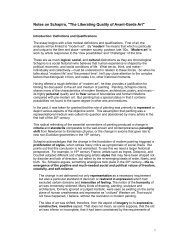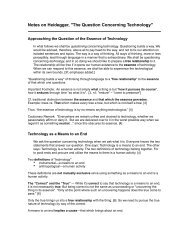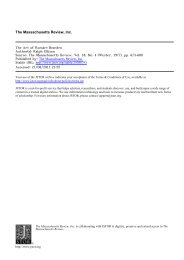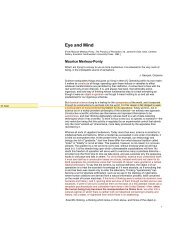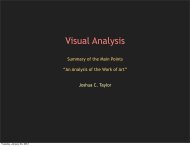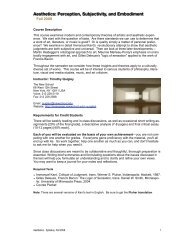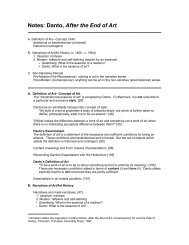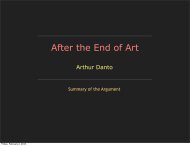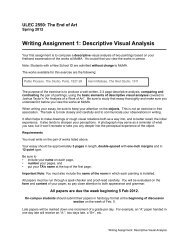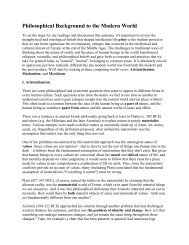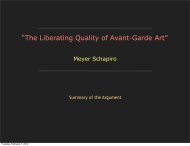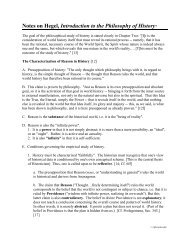Maurice Merleau-Ponty: The World of Perception - Timothy R. Quigley
Maurice Merleau-Ponty: The World of Perception - Timothy R. Quigley
Maurice Merleau-Ponty: The World of Perception - Timothy R. Quigley
Create successful ePaper yourself
Turn your PDF publications into a flip-book with our unique Google optimized e-Paper software.
famously moved the debate forward by distinguishing betweena priori concepts, such as identity, that are integral to the possibility<strong>of</strong> experience and thought, and empirical concepts thatare acquired on the basis <strong>of</strong> experience and are answerable tothe ways <strong>of</strong> thinking about the world which are best confirmedby experience. Thus Kant held that while the empiricists werelargely right about empirical concepts, the rationalists werelargely right about a priori concepts, which are the most importantones for philosophy. Most subsequent philosophers haveagreed with Kant on this point, and <strong>Merleau</strong>-<strong>Ponty</strong> certainlydoes. But he gives a very distinctive twist to the Kantian position,by maintaining that our embodiment is integral to the role<strong>of</strong> a priori concepts in sense experience. He sets out his attitudeto Kant in the following passage:Kant saw clearly that the problem is not how determinateshapes and sizes make their appearance in my experience,since without them there would be no experience,and since any internal experience is possible only againstthe background <strong>of</strong> external experience. But Kant’s conclusionfrom this was that I am a consciousness whichembraces and constitutes the world, and this reflectioncaused him to overlook the phenomenon <strong>of</strong> the bodyand that <strong>of</strong> the thing. 16 9



